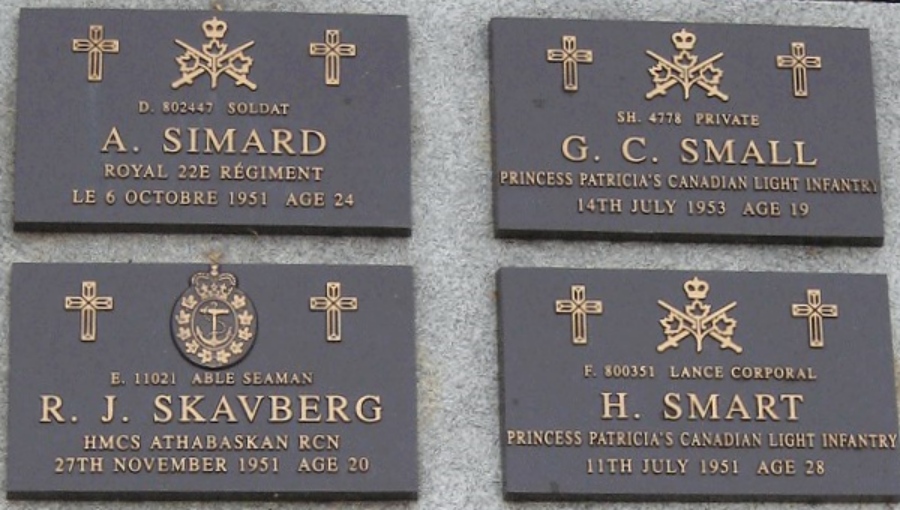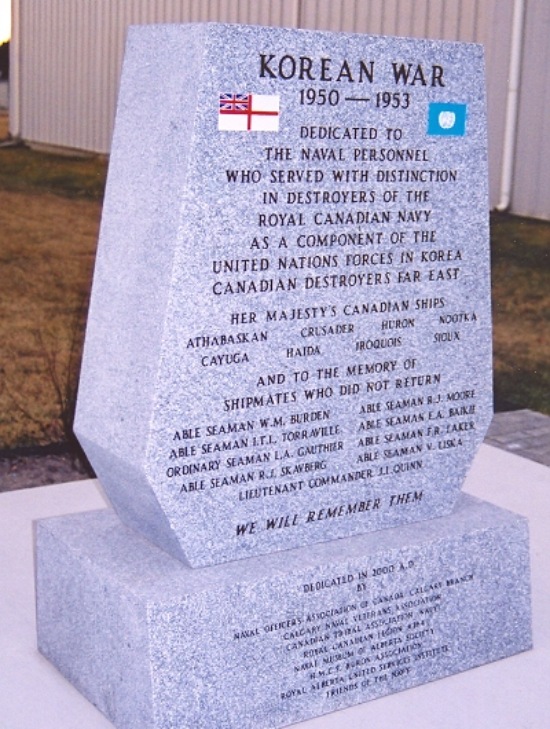
Robin J. Skavberg
Dubbed the “Forgotten War,” the Korean War is often overlooked. Sandwiched between the significantly larger scale World Wars and the hyper politically charged Vietnam War, Korea nonetheless represents an important part of 20th century history.
In response to North Korea (NK) invading South Korea (SK) in June 1950, the United Nations (UN) passed Resolution 82. The first action of its kind for the fledgling UN, Resolution 82 would help set the stage for UN intervention for decades to come. Further resolutions authorized the US to establish and lead a unified command of military forces from UN member states, including Canada. More than 26,000 Canadians served on land, at sea and in the air during the three-year conflict.
Born June 9, 1931, in Calgary, Alberta, Robin J Skavberg spent many of his formative years under the shadow of World War 2. He was exposed to countless stories about the horrors of war, and he saw the devastating impact it could have on the soldiers lucky enough to return. He also heard about the unfathomable bravery and unyielding comradery present in the Canadian armed forces. Believing in the latter, Skavberg would enlist with the Royal Canadian Navy (RCN) in April 1949, when he was just shy of 18 years old.
Unlike ground forces, which would not arrive until 1951, the RCN was immediately deployed in the Korean theatre. NK very quickly pushed SK back to the Busan peninsula, capturing most of SK. After NK captured the port of Yosu, a city on the south coast, HMCS Cayuga was tasked with destroying infrastructure bordering the harbour. As such, August 15, 1950, would see the first salvos fired by Canadian warships in Korea. Bombarding inland targets would remain a vital role of the RCN for the duration of the war.
The Western coalition maintained a firm blockade surrounding Korea throughout the war, which when paired with the shelling on the mainland, required ships to stay close to the Korean coast. Geography, hydrography, and climate created extremely challenging conditions for the RCN on the west coast. Winters were brutal, as the cold temperatures would often be paired strong gales and blinding snow squalls.

The Naval Museum of Alberta Society and the Calgary naval community erected a memorial dedicated to all Royal Canadian Navy sailors who served, and particularly to those who died, during the Korean War. Able Seaman Skavberg is inscribed on the bottom left. (Credit: Canadian Virtual War Memorial)
On November 27, 1951, intelligence reports indicated a looming invasion of Ch’o-do, a small island off the west coast of NK – the location was of strategic importance due to the presence of both a port and airport. HMCS Athabaskan was tasked with blockading invasion routes on the south side of Ch’o-do. Upon arriving at her position, she found a strong storm would make an enemy invasion attempt impossible and turned back to the shelter of Ch’o-do. After returning and dropping anchor, it was discovered Skavberg was missing. Having been seen on the upper deck only an hour before, HMCS Athabaskan began the desperate search for the missing sailor. Tragically, despite using her searchlights and large signal projector in blatant disregard of the enemy shore batteries on Am-gak, the search was unsuccessful.
Robin Skavberg was declared lost at sea that same day. He was memorialized on the Wall of Remembrance, a South Korean war memorial honouring those who gave everything to ensure their freedom. Skavberg was only 20 years old when he passed.
Additional information & Further Reading:
Canada in Korea
The Battle of Kapyong
Main photo: Able Seaman Skavberg’s plaque (bottom left) on the Korea Veterans National Wall of Remembrance. (Credit: Canadian Virtual War Memorial)
References:
Fowlow, Fred. 2011. “The Korean War: Defending the Friendly Islands.” Starshell, Autumn: 18-21. Accessed July 2023. https://www.navalassoc.ca/wp-content/uploads/2019/08/Starshell-Autumn-2011-Color-Final.pdf.
Government of Canada. 2022. “Able Seaman Robin Jensen Skavberg.” Canadian Virtual War Memorial. Accessed July 2023. https://www.veterans.gc.ca/eng/remembrance/memorials/canadian-virtual-war-memorial/detail/80000417.
Thorgrimsson, Thor, and E.C. Russell. 1965. Canadian Naval Operations in Korean Waters 1950-1955. Ottawa: Queen’s Printer.
United Nations Command. n.d. “History of the Korean War.” Accessed July 2023. https://www.unc.mil/History/1950-1953-Korean-War-Active-Conflict/.

